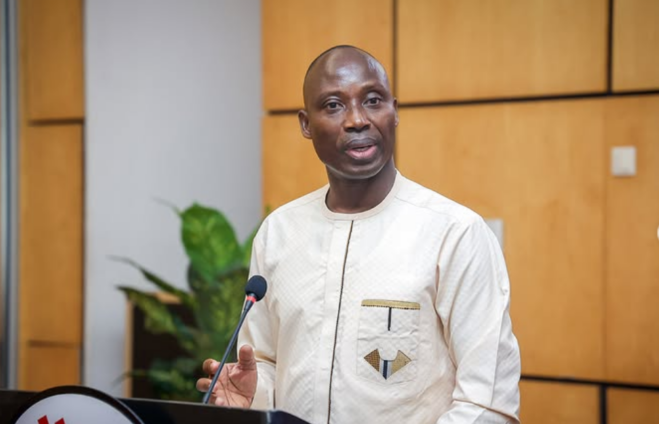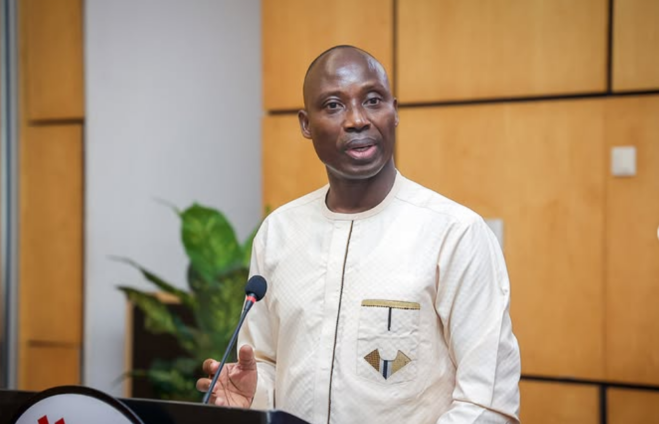
The Government Statistician has emphasized that maintaining fiscal discipline remains essential to preserving Ghana’s dramatic inflation reduction, which reached 8.0 percent in October 2025.
Dr. Alhassan Iddrisu warned that any departure from strict budgetary controls could quickly reverse the country’s achievement of bringing inflation down from 23.8 percent in December 2024 to single digits within ten months. The October figure represents the lowest rate recorded since June 2021 and marks the tenth consecutive monthly decline.
“Fiscal consolidation means the government is collecting more revenue while rationalizing expenditure to reduce wasteful spending,” Dr. Iddrisu explained during a briefing on the latest Consumer Price Index (CPI) data. The approach minimizes borrowing needs and strengthens overall fiscal stability.
Ghana’s primary balance on commitment basis reached a positive 1.1 percent of Gross Domestic Product (GDP) through the first eight months of 2025, according to the International Monetary Fund (IMF). This indicator shows that government revenues exceeded non-interest expenditures, signaling robust fiscal health.
The recently enacted Public Financial Management (Amendment) Act, 2025, requires maintaining a minimum positive primary balance of 1.5 percent of GDP. Parliament passed this landmark legislation in April 2025, well ahead of the September deadline set under the IMF-supported program.
The new law also establishes an Independent Fiscal Council to monitor government spending and ensure accountability. These institutional frameworks aim to make fiscal discipline a permanent feature of economic governance rather than a temporary policy choice.
“These institutional frameworks ensure that fiscal discipline becomes a permanent feature of Ghana’s economic governance,” Dr. Iddrisu noted. The legislation mandates strict sanctions for ministers who breach fiscal rules, including potential censure under Article 82 of the Constitution.
The Ghana Statistical Service (GSS) attributes the inflation decline to multiple factors beyond fiscal policy. Improved food production, falling global commodity prices, and effective monetary policy by the Bank of Ghana have all contributed to stabilizing prices.
Month on month inflation turned negative in October at minus 0.4 percent, meaning the overall price level actually declined between September and October. Food inflation fell to 9.5 percent from 11.0 percent in September, while non-food inflation dropped to 6.9 percent from 8.2 percent.
However, Dr. Iddrisu stressed that fiscal slippage could undermine these gains. “Maintaining fiscal discipline is non-negotiable. Any deviation from this path can undo the progress made so far,” he cautioned.
The Government Statistician expressed confidence that inflation will remain stable through 2026 if the government adheres to its expenditure plan and strengthens domestic revenue mobilization. The GSS credited collaboration between fiscal and monetary authorities as vital for sustained macroeconomic stability.
Regional variations persist across Ghana, with the North East Region recording the highest inflation at 17.3 percent and Bono East Region registering the lowest at 1.1 percent. These disparities reflect differences in food production, market access, and transportation costs.
The Bank of Ghana targets inflation of 8 percent with a margin of error of 2 percentage points either side. October’s reading falls exactly at the midpoint of this target band, suggesting monetary and fiscal policies are achieving their intended effects.
Ghana continues its recovery from the severe economic crisis that began in 2022, when inflation peaked above 54 percent. The country defaulted on external debt in December 2022 and launched a comprehensive restructuring program with IMF support totaling approximately 3.2 billion US dollars.
